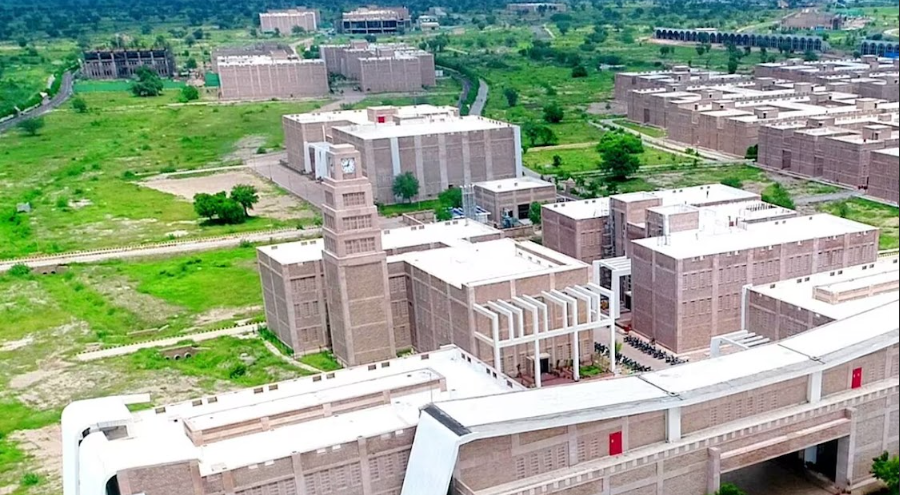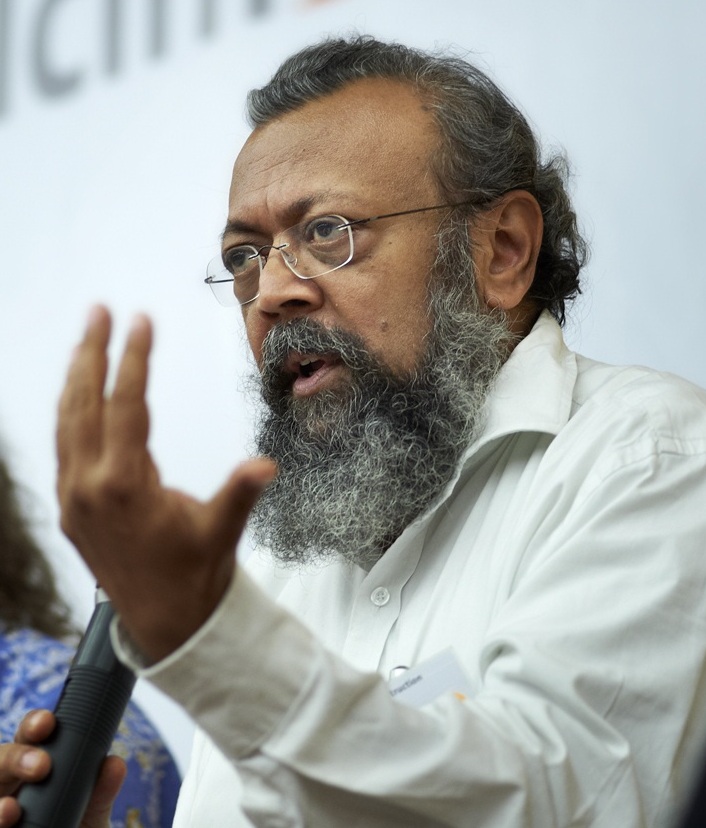Architect Sanjay Prakash is a pioneering figure in energy-conscious architecture and eco-friendly design, dedicated to merging sustainability with urbanism in both his professional and personal life. As the leader of SHiFt-Studio For Habitat Futures, a firm renowned for its innovative approach to future-forward architecture, Prakash and his team are committed to creating buildings that stand the test of time, environment, and energy efficiency.
For over three decades, SHiFt has been at the forefront of passive and low-energy architecture, focusing on hybrid air-conditioning, autonomous energy and water systems, earth construction, and community-based design. The firm’s portfolio is rooted in sustainability and people's participation, promoting eco-friendly solutions for both modern urban landscapes and rural settings.

IIT-Jodhpur Campus, Rajasthan: A Sustainable Marvel The IIT-Jodhpur campus, situated in the challenging desert environment of Rajasthan, stands as one of Ar. Sanjay Prakash's most distinguished projects. Designed as an intricate, living system, the campus reflects the interconnectedness of natural ecosystems and advanced technology. According to Prakash, it is India's largest GRIHA LD 5-star rated campus, a benchmark of sustainability and green design. The "Smart Intelligent Eco-Campus" is a showcase of how social, economic, and environmental sustainability can be seamlessly integrated. The design incorporates landscape, biodiversity, energy, food, water, and waste systems, along with ICT-based monitoring to create a dynamic, self-sustaining environment that mimics the metabolism of a living organism.

Inspired by Traditional Desert Settlements Drawing inspiration from traditional desert settlements, the campus is designed around clusters of low-rise buildings (mainly two to three stories), compactly arranged along narrow, east-west streets. These streets are staggered to avoid long wind corridors, helping to maintain a comfortable environment in the desert heat. The buildings are also sheltered by earthen berms that reduce noise, dust, and heat, contributing to the site's eco-friendly, comfortable living conditions. This thoughtful design approach goes beyond aesthetics, aiming to reduce soil erosion through wind control, forming a key part of the desertification strategy. The design includes green buffer zones, intelligent landscaping, and green infrastructure to support the campus's environmental goals.

A Vision for Long-Term Sustainability If fully realized, the campus’s strategy will gradually recharge groundwater reserves and reduce its salinity, allowing all water needs to be met through groundwater extraction and harvested rainwater. In the meantime, water is supplied by the Rajasthan canal, but through efficient fixtures, extensive sewage recycling, rainwater harvesting, and water conservation measures, the campus’s water demand has been reduced to just a quarter of what a typical campus would consume. The IIT-Jodhpur campus exemplifies Sanjay Prakash's holistic approach to sustainable architecture, blending traditional wisdom with modern technology to create a sustainable, self-reliant oasis in the desert. His work continues to set new benchmarks in sustainable design, inspiring architects to explore eco-friendly solutions for the future.



